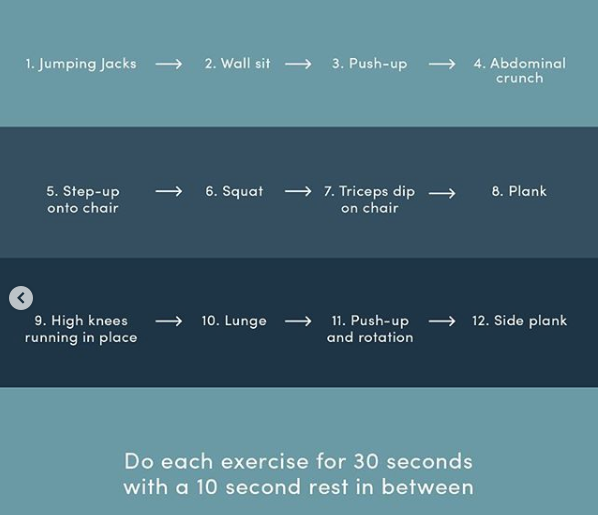Spanx and dad bods - what do they have in common?
The picture above is the Spanx warehouse circa 2019 (popped up on linkedIn and if I’m being honest served as the muse for this post)
If these terms are foreign to you. Spanx is a huge company that manufactures shapewear to help men and women appear thinner. The term “Dad bod” (as defined by the Urban dictionary) is a male body type that is best described as "softly round." It's built upon the theory that once a man has found a mate and fathered a child, he doesn't need to worry about maintaining a sculpted physique.
These products and this language are symptoms of large health issues.
If you are wondering, here are three common threads: a damaged liver, metabolism dysfunction and weight loss resistance.
If you have read some of my other posts then the term fatty liver syndrome is not all that new. When the liver is overburdened by excess sugar it will store fat, become insulin resistant and spark an inflammatory response.
Think about the combination of overly stressful lives and modern diets high in refined carbohydrates and excess calories. This is no walk in the park for the body. On the contrary, it's extremely taxing. If we are carrying excess weight over extended periods, the pancreas and the liver are taking a hit. Depending on how well your metabolism works people’s bodies respond across a broad spectrum.
Have you heard of the TCA cycle, also known as the Krebb’s or citric acid cycle? This cycle allows the body to burn food for energy by converting glucose into ATP. The more glucose burned, the less glucose in the bloodstream. Too much glucose in the bloodstream can have a damaging effect. It’s one reason why we check the biomarker hemoglobin A1C. It’s measuring the approximate damage to the red blood cells over the course of 90 days. Out of control glucose levels damage body proteins in the bloodstream, which in turn has damaging effects on the eyes, brain, kidney, etc. If high fructose is repeatedly making its way into your diet excessive fructose consumption can lead to excessive glycation of proteins (up to 16 times faster) than glucose.
Every day is a chance to right the ship a little bit at a time. The body is very dynamic and desperately prefers to be in an energy balanced state. Your DNA holds the blue print to a well functioning metabolism, but it needs a diet with the right type and amount of fuel.
If we can construct a daily routine that normalizes glucose, leptin, and insulin metabolism the benefits are Vast (with a capital V):
reduced risk of diabetes-related complications
(neuropathy, kidney or vision damage),
lower cardiovascular risk (lower blood pressure, triglycerides, increased HDL, better
endothelial function)
reduced cell proliferation (tumors), less water retention, less fat storage and easier fat release from the adipose cells.
In my experience when patients regain their metabolic flexibility they will see their blood pressure and high cholesterol normalize. And in the case of autoimmunity these markers improve as well. When I use the term metabolic flexibility I’m referring to humans ability to use, properly store, and breakdown different food sources.
Sayonara Spanx expenditures and dad stereotypes
When you are trying to repair your metabolism you need to layer in 4, possibly 5 things.
Better Sleep
Mitigate stress
Activity level
Food
Supplements in therapeutic doses.
Research shows that sleep deprivation can have profound metabolic and cardiovascular implications. Sleep deprivation, sleep disordered breathing, and circadian misalignment are believed to cause metabolic dysregulation through myriad pathways involving sympathetic overstimulation, hormonal imbalance, and subclinical inflammation (1). Some studies have shown that recurrent partial sleep restriction can create dysfunction of both glucose and lipid metabolism. Lastly, epidemiological data is suggestive of weight gain with sleep deprivation, although a few studies have also noted weight gain with prolonged sleep.
We know that perceived stress can have a similar impact as physical stress. Stress can be a thought or even the perception of a threat. If we loop back to stress and metabolism what we find is a cluster of disorders: Obesity, lipid disorders, type 2 diabetes, high blood pressure and coronary heart disease. When you are stressed your nervous system, specifically the sympathetic nervous system, activates a stress response. It does this through epinephrine and cortisol release. Over the long term these hormones decrease your body’s sensitivity to insulin. It hypothesized that cortisol may favor the development of central obesity. Hello flat tire and muffin tops.
Today we are faced with repeated professional or social stress and a small portion turn to exercise to help curb the stress and maintain weight. If your metabolism is broken it probably makes more sense to fix your nutrition, sleep and stress before you overhaul your workout routine. I’m not saying don’t exercise but it’s better to incrementally build up to more challenging training. As someone who works out 5-6 times per week, it's very important. If you are someone with the signs and symptoms of metabolic syndrome walking, occasional stretching (yoga) and micro workouts might be the better way to start.
For example check out this quick circuit that Dr. Mark Hyman shared on social media.
This 7 minute workout has been shown to: decrease body fat, lower insulin resistance, and improve VO2 max and muscular fitness.
When you are struggling with weight loss resistance, diabetes, heart disease, or fatty liver, food can seem like an enigma. Let me be clear - sifting through all the information can be overwhelming and in some ways feel defeating. How you plan, package and execute will determine the degree of transformation. I’m going to avoid the gritty details and share a few patterns. If what to eat is the bane of your existence I would suggest two options. Start reading some of the new books on nutrition or work with a functional nutritionist until you feel you are ready for some autonomy. It’s never a bad idea to have functional medicine practitioner run a comprehensive blood panel to understand your baseline markers.
Let me preface these statements with:
Eat the standard American diet, get the standard American diseases.
No 1. When it comes to food “focus on taking the role of an impartial observer”. The food we eat is tied to our emotions and woven into our habits.
No. 2 Make sure you are eating to meet your energy needs.
No. 3 Say goodbye to bagels, cereal and flour (at least during the dietary intervention). Chances are you will be able to reincorporate down the line.
No. 4 Do not fall prey to overly restrictive fad “all or nothing” diets (there are exceptions). Give your body the vitamins nutrients and minerals by eating some meat and plants. Avoid foods with labels and if they have them read them!
The last I read the dietary supplements industry was at 122 billion a few years ago. It’s expected to grow another 100 billion. What can I say? We’re getting sicker and are open to magic pills. The reality is that some supplements have a place in nutritional care plans and therapeutic protocols. Once you find the right supplements they can be beneficial. For non-practitioners I’m not sure if it’s really possible to stay up to date on the best products. Moreover, understanding when and how to incorporate and test a supplements efficacy take some education. Along with diet and lifestyle changes supplements can be extremely powerful tools for treating and in many cases overcoming symptoms that present with metabolic disorders.
As always please email your health questions to nick@spineandjointoc.com


